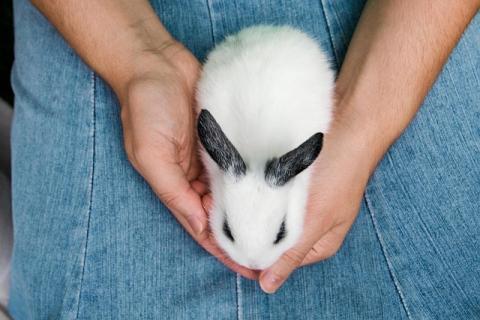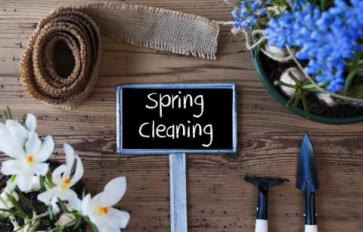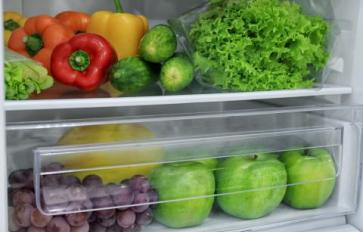
Did you know 'vegan' can also apply to beauty products (not just your diet)? You might have seen a skincare product labeled 'vegan' or 'cruelty-free' while out shopping. Sadly, a lot of people get confused about this. Want to know what each label really means? No worries: It's actually pretty simple to understand. Here, I explain what each term means and why they're certainly not the same thing. That said, it's important to note a product can certainly be both vegan and cruelty free at the same time. However, just because it's one, doesn't mean it's the other. Once you understand this, you'll be able to make better, more informed decisions in regards to beauty products.
The vegan label: What it means
When a beauty product is labeled vegan, it means no animal by-products are found in the product. Yes, it's really that simple. Here are some ingredients that are not vegan: Honey, beeswax, collagen, lanolin, gelatin, carmine, albumen, and cholesterol. Those are just a few. If a product contains any of those ingredients, it's certainly not vegan. In order to tell if a product is truly vegan, always read the ingredients list. If you see any animal ingredients, or animal derived ingredients, stay away. Of course, this is assuming your values align with vegan products. If you don't mind certain non-vegan ingredients in your products (for example, beeswax is commonly found in lip balms), then this label might not be as important to you. It truly depends on your ethics: For example, I like buying vegan beauty products, but can make an exception if a product contains beeswax or honey. That's just my personal preference. That said, I know not everyone would feel the same, so it's important to find where your ethics and boundaries lie. Also, please note that just because a product is vegan, does not mean it is cruelty free. Which brings me to my next topic...
The cruelty-free label: What it means
To me, cruelty-free is a must. That's because cruelty-free means there's no form of animal testing at any point in the creation of a brand's products. Unfortunately, it's common for most brands to test products on animals as the product is being made. Either that, or they source ingredients that have been tested on animals already by a third-party. While most brands don't test the final product on animals, they're still far from cruelty-free. There is also "required by law" animal testing, another common excuse brands use to test on animals. This means that the finished products are tested on animals by a third-party to "comply" with various regional laws around the world. Many times, companies will lie about their status on animal testing, or they'll give vague, unclear answers.
The only sure-fire way to tell if a brand is cruelty-free is to look for the Leaping Bunny symbol. If you see that symbol, you can rest assured there was no animal testing conducted at any point. That said, I recommend contacting the company outright and asking if they test on animals in any way. If they respond promptly, stating they do not test on animals and their suppliers do not either, you're good to go. But if they do not give you a reply, or leave you with a murky answer, then play it safe and avoid purchasing from those companies. And remember, just because it's cruelty-free does not mean it's vegan.
Conclusion: Choose based on your ethics
Clearly, both these labels have different meanings. Ultimately, it's up to you what you decide to buy: vegan products, cruelty-free products, or both. Personally, I try to buy products that have both labels on them, but that's just me. You might have a different set of values. Just remember, you make a statement with every product you purchase. If you're not happy with the statement you've been making, it might be time for a change. To make sure a company is vegan and cruelty-free, here are some tips to make sure you're never out of the loop. At the very least, you're now a more informed consumer. Happy shopping!








